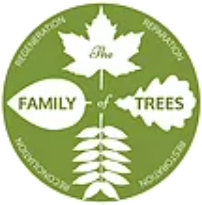Lawns originated in the Middle Ages, around castles, as a place for defensive and community activities like archery practice and grazing sheep (not recommended simultaneously!). Nowadays every home is a castle; unfortunately these village greens do not come with a mob of peasants to do the work. That’s why we’ve become dependent on chemicals; it’s perceived as being much easier! The information below is the organic equivalent of “the mob of peasants in a bottle.”
Organic lawn maintenance is easy if you are aware of the specific needs of lawn grasses.
- 1 inch of water per week (lawn grasses aren’t native to this continent and need more water than nature provides in this climate)
- Mow at 3-4 inches high (conserves water, prevents weed seeds from germinating and crowds weeds)
- Apply organic fertilizer twice per year (grass needs to eat!)
If you want a thick, healthy, vigorous turf, and have a sparse, weed-infested, partially dead mat of green things, there is hope! Most ugly lawns are caused by a shortage of microbes in the soil due to herbicides, synthetic fertilizers and other environmental stresses. These microbes are what break down nutrients, aerate soil, and make soil a living organism that symbiotically exists with plants. Here is how you can create high populations of diverse microbial life in the soil:
- Water one inch per week (including rainfall)
- Aerate the soil in the early fall
- Top-dress with quality compost (a ¼ inch layer of compost spread on the surface of the soil)
- Use only organic fertilizers
Increase microbe populations with compost tea, an aerated, expertly-brewed solution of microbes propagated from extremely high-quality compost. Compost tea is a concentration of beneficial microbes that, when applied to your lawn feed, water and care for grass and the soil. Be careful of non-aerated compost teas as they can propagate anaerobic organisms like E coli and Salmonella. Top-dressing with good, quality compost is a great alternative to compost tea.
Here is a good basic organic annual program:
- Late April: Apply corn gluten meal (an organic weed preventive)
- May/June: Top-dress with compost or apply compost tea
- Late July/early August: Apply corn gluten meal (Unless you plan to seed grass in September: corn gluten meal stops all seeds from germinating. If you plan to seed, skip this step)
- September: Aerate, top-dress with compost, apply organic fertilizer, over-seed, apply compost tea
- October: Apply organic fertilizer
Many nurseries and garden centers carry organic fertilizers, bagged compost, seed and other supplies. Refer also to the resources below for additional locations.
Weed control
Beware of online recipes for homemade organic weed killers. Most are vinegar, salt and water or baking soda and water. Salt and baking soda won’t hurt us but they kill beneficial microbes and will actually cause weeds in the long run. A good home remedy for weed control is pickling vinegar poured or sprayed on weeds. Regular vinegar is 5% acetic acid; pickling vinegar is 9%. Stronger is better. CAUTION! Vinegar will kill everything it is applied on so be careful with lawn grass and desirable plants. You may paint it on weeds in lawns or gardens to control young weeds. Many garden centers and nurseries sell non-selective products with vinegar so use caution. They will kill desirable plants. Another alternative is fire! Small handheld torches can be used to wilt weeds in lawns and gardens. Use caution to avoid damaging desirable plants and anything you do not wish to burn.
The best method of controlling weeds is to increase soil microbe diversity and populations which will correct the poor soil conditions that are the cause of weeds. Remember, Mother Nature is always striving for an advanced ecology like a prairie or a rainforest and she uses weeds to correct soil problems that interfere with this natural progression.
Now go forth and practice organic lawn care. Tell your friends and neighbors that organic lawn care is easy and affordable.
The Chemical-Free Lawn:
The Newest Varieties and Techniques to Grow Lush, Hardy Grass,
Warren Schultz, Rodale Press, 1989.
The Organic Lawn Care Manual, Paul Tukey, Storey Publishing, 2007







